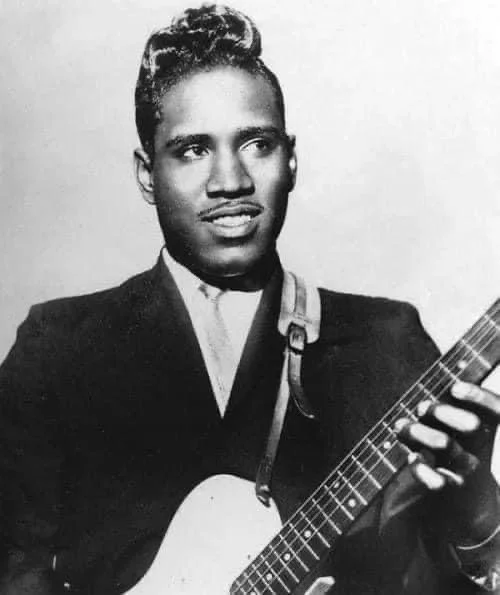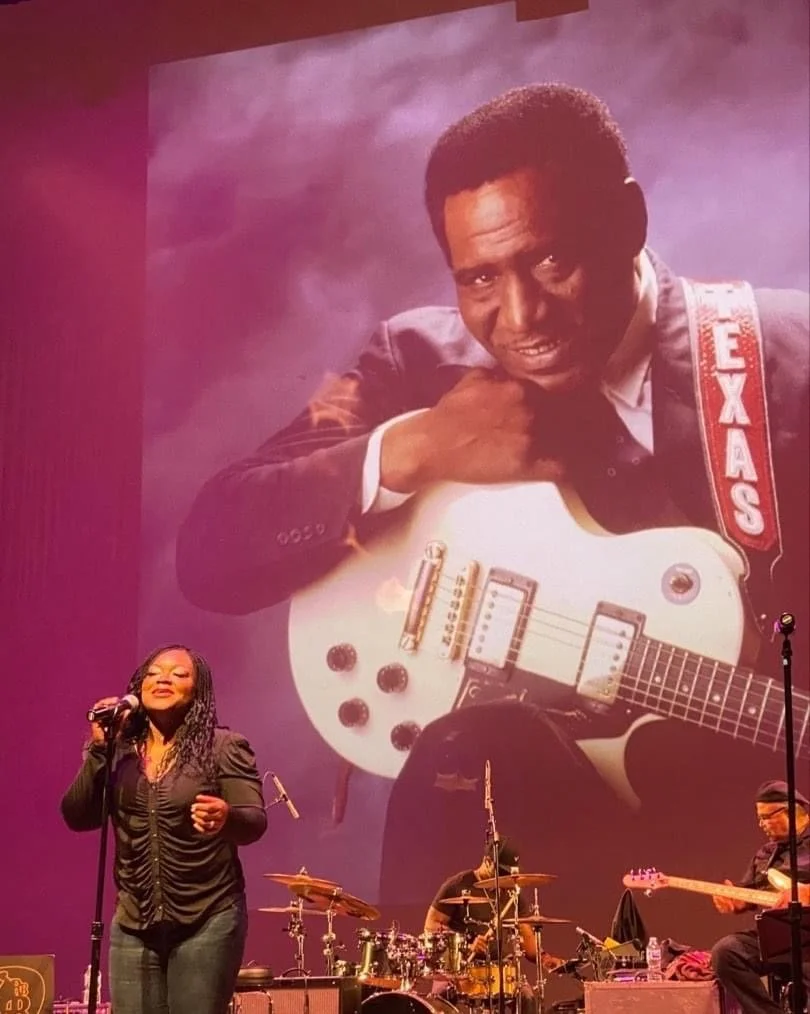
Johnny Clyde Copeland, the legendary “Texas Twister,” was born on March 27, 1937, in Haynesville, Louisiana, the son of sharecroppers. His parents separated when he was only six months old, and his mother raised him in Magnolia, Arkansas. When Johnny’s father died, he left his young son a guitar — an instrument that would become both Copeland’s inheritance and his destiny.

Copeland’s touring and recording pace remained relentless through the 1980s and 1990s. Albums such as “Ain’t Nothing But a Party (Live)” (1988), “Flying High” (1992), and “Catch Up With the Blues”(1994) further showcased his searing guitar licks, gritty vocals, and sharp songwriting. He became known as the “Fire Maker,” a nickname that captured the intensity of his live performances.
Copeland also stood out for his sense of blues history and musicology. Unlike many of his peers, he consistently tied his music to its African roots, touring Africa twice and incorporating those influences into his recordings, including his final African-inspired album, “Jungle Swing” (1996, Verve Records).
In 1994, Copeland was diagnosed with serious heart disease. Over the next few years, he endured numerous hospital stays and at least eight heart surgeries, including the implantation of an L-VAD (left ventricular assist device). His use of the device drew national attention when he appeared on CNN and Good Morning America. Remarkably, Copeland continued performing while living on mechanical heart support for twenty months.
On January 1, 1997, he received a successful heart transplant and, by April, returned to touring. Sadly, his health quickly declined. In July of that year, complications from heart surgery claimed his life at the age of 60. He was laid to rest in Paradise South Cemetery in Pearland, Texas.
Johnny Clyde Copeland’s career spanned four decades and left an indelible mark on modern blues. His honors included a Grammy Award, multiple W.C. Handy Awards, and recognition from the French National Academy of Jazz. He was one of the few blues musicians to perform behind the Iron Curtain in the 1980s, and his international tours helped spread Texas blues around the globe.
Beyond awards and accolades, Copeland’s legacy lives on in the fire of his playing, the depth of his songwriting, and the artists he influenced. His daughter, Shemekia Copeland, has carried forward the family tradition, becoming one of today’s most celebrated blues singers.
Johnny Clyde Copeland, the Texas Twister, will always be remembered as a fiery guitarist, passionate performer, and a bridge between the blues’ African roots and its modern expressions.